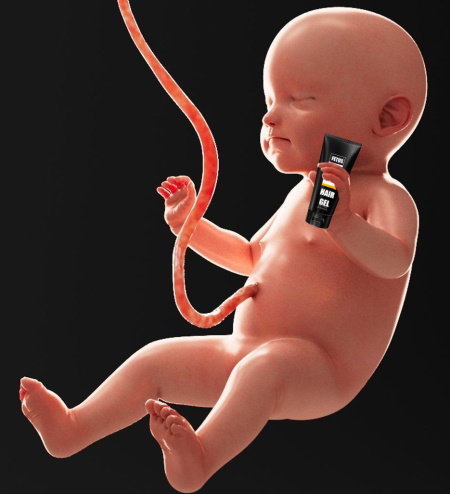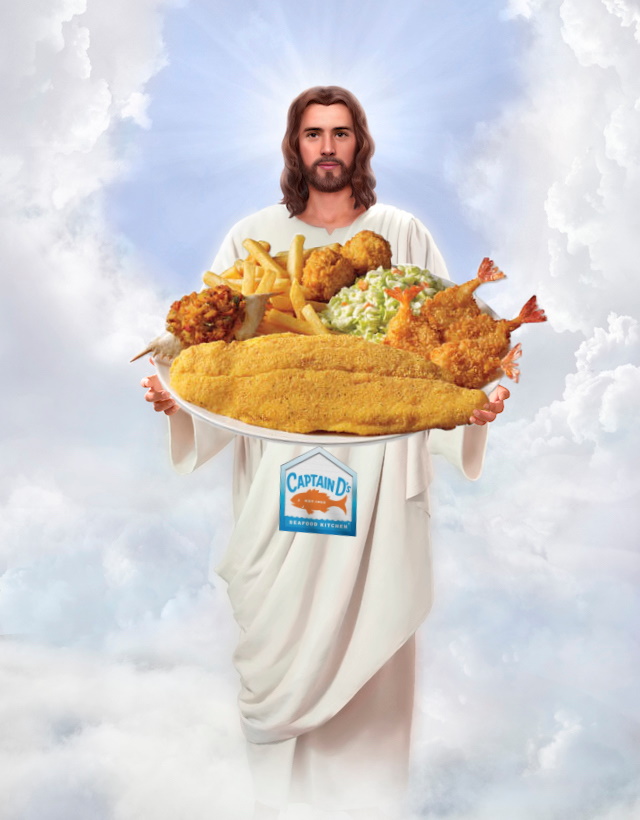Buy it, even though we’re not going to tell you anything about it.
Advertising doesn’t have to be as weird as it is. It could just be companies listing what products they sell. It once WAS just companies listing what products they sell. That ad strategy makes sense, is simple and tells people who want to buy those products where they might go to find such products. That was how it was. How it was has little-to-no-relation to how it now is.
I don’t know exactly when it happened. My guess is somewhere in the mid-twentieth century, but I’m only making that guess because that seems to be around the time when America began to slowly fuck everything up. War became a straight-up business. Celebrity culture turned actors, formerly just a bunch of fun misfits with some degree of performance talent, into unrealistic examples of who we thought we were supposed to want to be, despite the fact that an alarming number of them read at less-than-a-fourth-grade-level, their having-bulimia-to-not-having-bulimia ratio would make even the best high school cheerleading squad envious, and that although some of them can actually act, most of them have only one truly marketable talent — just being good-looking. We began inventing numerous products which we would later come to regret (I’m looking at you, Styrofoam, and you, plastic.). We elected one amazing far-sighted, compassionate president and then promptly murdered him, and followed this up with a series of pre-packaged corporate shills with no redeeming emotional or intellectual talents to speak of. (In case you’re wondering Nixon, Bush and Clinton, yes I am indeed talking about you.) Essentially everything went to crap in the twentieth century. But nothing in our society took as strange a turn as the advertising industry.

I blame the population explosion. At their base level pre-crazy-turn advertisements used to be “Hi, we’re Company X and we make widgets, so if you want a widget come on down to Company X and we’ll sell you some widgets.” It’s simple, direct and at least somewhat informative. It makes sense. But once Company Y opened their doors to compete with Company X, both Company X and Company Y felt the need to try and one-up the other. First they changed their names to something catchy, if stupid, like Dumbassington’s Idiot Emporium (OK, they probably didn’t really go by Dumbassington’s, but they might as well have.). Then, feeling that Moron Village was on the verge of eating into their market share, instead of just listing their products or even highlighting what was good about their products, they hired advertising executives to create fake personas for them, or more often than not, to simply talk trash about their rivals. Moron Village cares, unlike those evil bastards at Dumbassington’s. “Hi, we’re Moron Village. Unlike Dumbassington’s, we at Moron Village would never think of poisoning your fetuses. That’s why we guarantee that our hair gel is safe to use on your prenatal miracle. Dumbassington’s would have you believe that their hair gel doesn’t turn fetuses paisley and won’t lead to a condition known to medical science as Belly Button Ears. Don’t believe the hype. Moron Village’s prenatal hair gel is the only fetal beauty product guaranteed not to make your baby Chinese.” (Remember this was an era more comfortable with overt racism, a relatively common ad strategy in the early days of the crazy turn. I’m looking your way, Aunt Jemima.)

Somewhere in there another ridiculous but enduring ad strategy emerged, the celebrity endorsement. Seriously, who cares which brand of cigarettes Dean Martin prefers? Nothing against Dean Martin, but am I supposed to want to emulate him just because he’s got a good singing voice? Yes, apparently that’s exactly what I’m supposed to do. Since by this time we had all collectively shed our common sense, this strategy proved surprisingly effective. Professional athletes, actors and even retired politicians jumped into the pitchman game. Hollywood actors who wanted to be taken seriously back then had to leave the country to make ads so they wouldn’t be accused of selling out on the home front, but even that standard soon slipped away. Now we have car commercials with literally no words, just Matthew McConaughey driving his vehicle silently down the road. This tells me nothing whatsoever about the merits of this vehicle, and honestly it doesn’t even really tell me what it’s pretending to tell me, that Matthew McConaughey truly even drives that car, only that this car company would prefer that we think he does.
Oligopolies are all the rage now. We still can’t quite stomach monopolies in America, and that’s good news since monopolies run entirely counter to the ideals of free market capitalism and wind up just crapping all over us and then making us beg and then pay for their next turd offering. Monopolies never actually let you collect $200 just for passing “Go,” more often than not they charge you $200 for passing “Go.” Unfortunately, oligopolies (a few companies cornering the market on a certain product) tend to collude, even though they’re not legally supposed to. Since when has America let something as pedestrian as the law get in the way of massive profits? Oligopolies are everywhere. Coke and Pepsi. Google and Yahoo. Barnes & Noble and Amazon. (That analogy doesn’t quite line up, but there is only one non Barnes & Noble chain bookstore even left in the country and it’s not popular enough for me to put it in this rant.)
Oligopolies, having already pretty well gamed the system, then turn their attention to distracting us from our lack of options…through advertising. They trash each other often and in public. Coke hires a celebrity pitchman who makes commercials trashing Pepsi. Pepsi hires a different celebrity pitchman to make commercials trashing Coke. Neither of them deigns to acknowledge the handful of other soft drink companies, who, since they’re neither Coke nor Pepsi, aren’t even worth noticing, despite the undeniable fact that they all taste the same and are basically all just dyed, brown sugar-water with God knows what chemical enhancements. As far as Coke and Pepsi are concerned there is no such thing as RC Cola.
Once the public tired of corporate shit-talking and celebrity endorsements, ads took an even less understandable turn for the bizarre. Turn on your television now, any channel will do, and truly analyze the commercials. Most of them now are channeling their inner-Salvador Dali. They’ve gotten all kinds of surreal, to the point that not only is it vastly more difficult to grasp the story they’re trying to tell us about their product, but half the time it’s hard to even figure out what their product is. If they hadn’t already gotten so well-versed with human psychology that most of us can instantly recognize the company by its logo, its pitchman (be he American actor or British cartoon lizard) and/or its signature product on spec, they might have to go back to basics and just lay out the name of their store, what they sell, and maybe, maybe, if we were feeling lucky, why their product is superior to the competition’s.
Alas, those days are gone. Of course, I suppose we could, theoretically, turn off the TV and read a book…but this is America and that probably ain’t happening any time soon.
